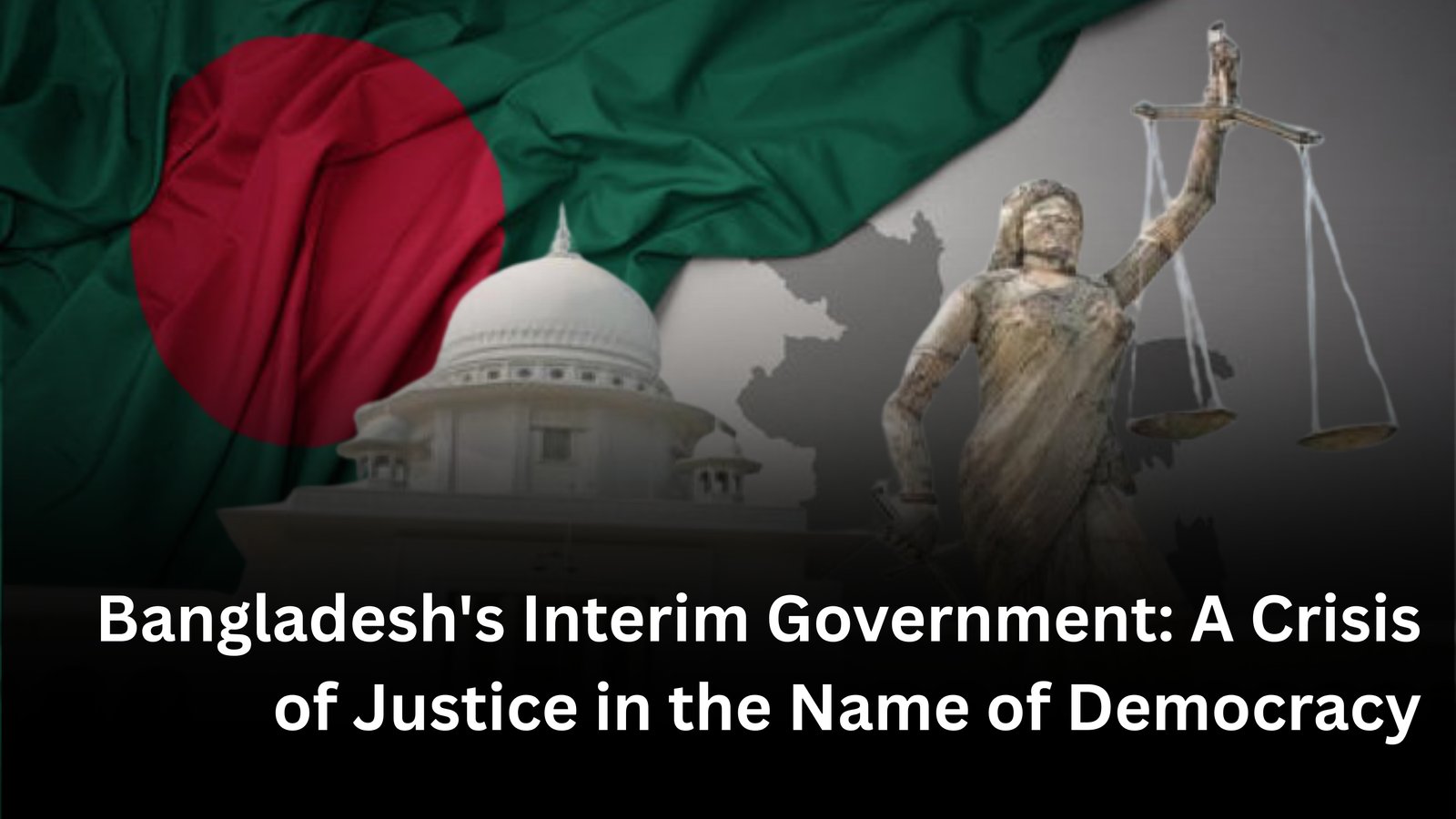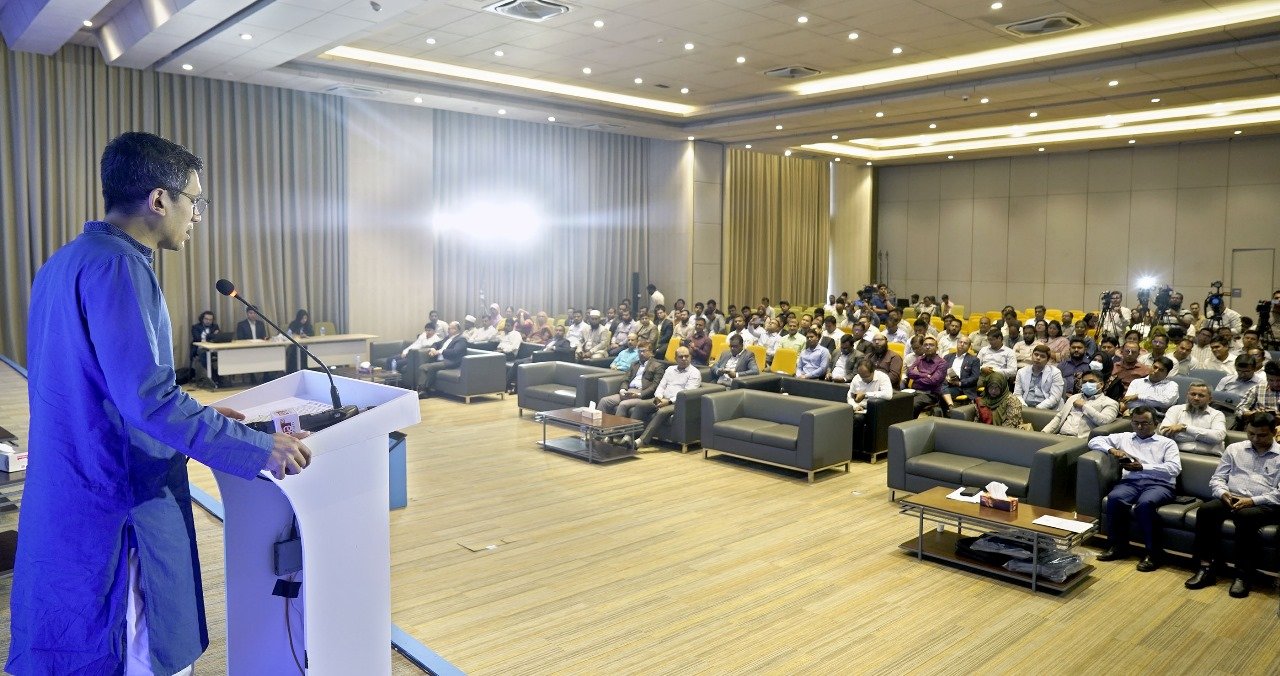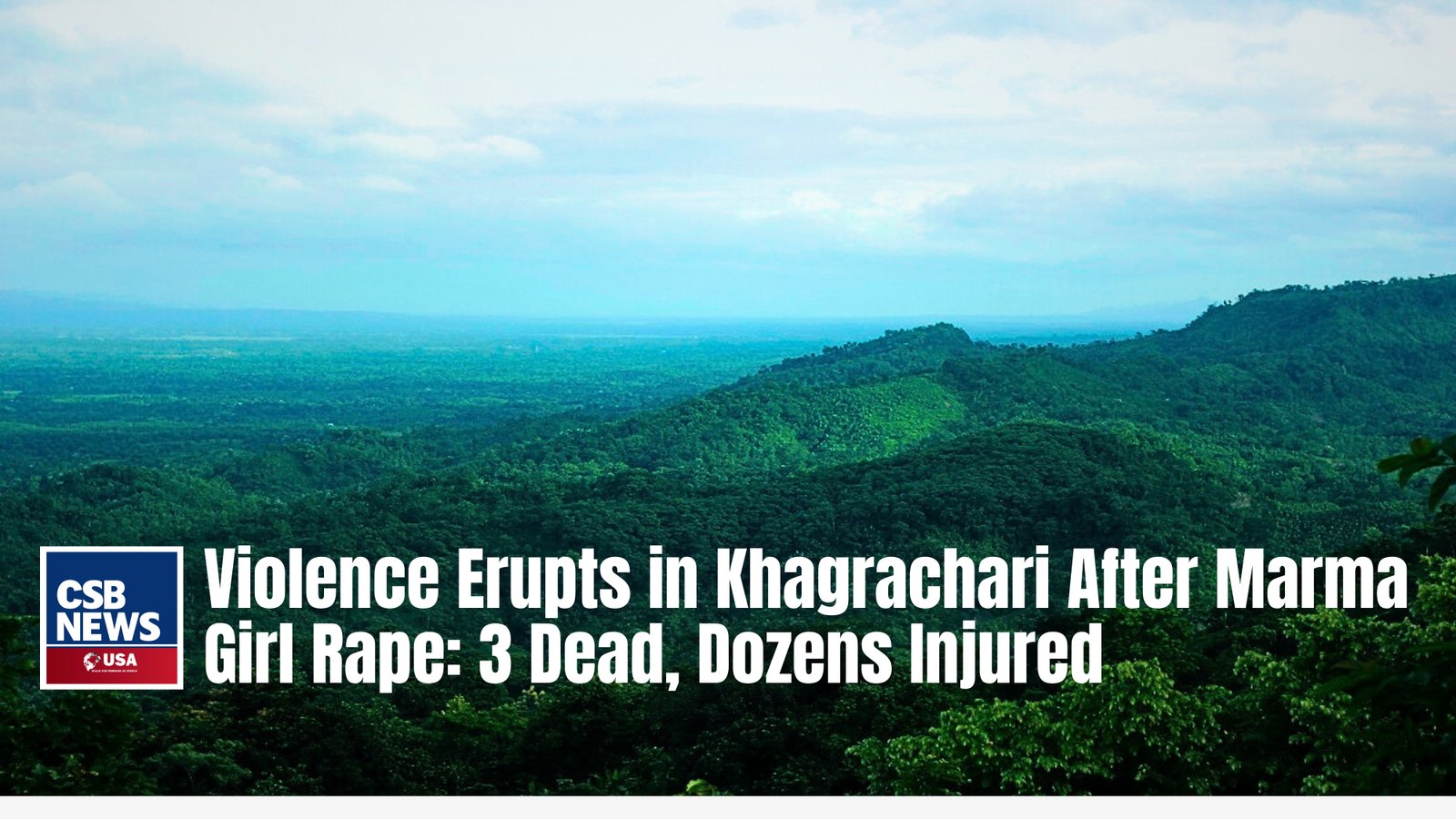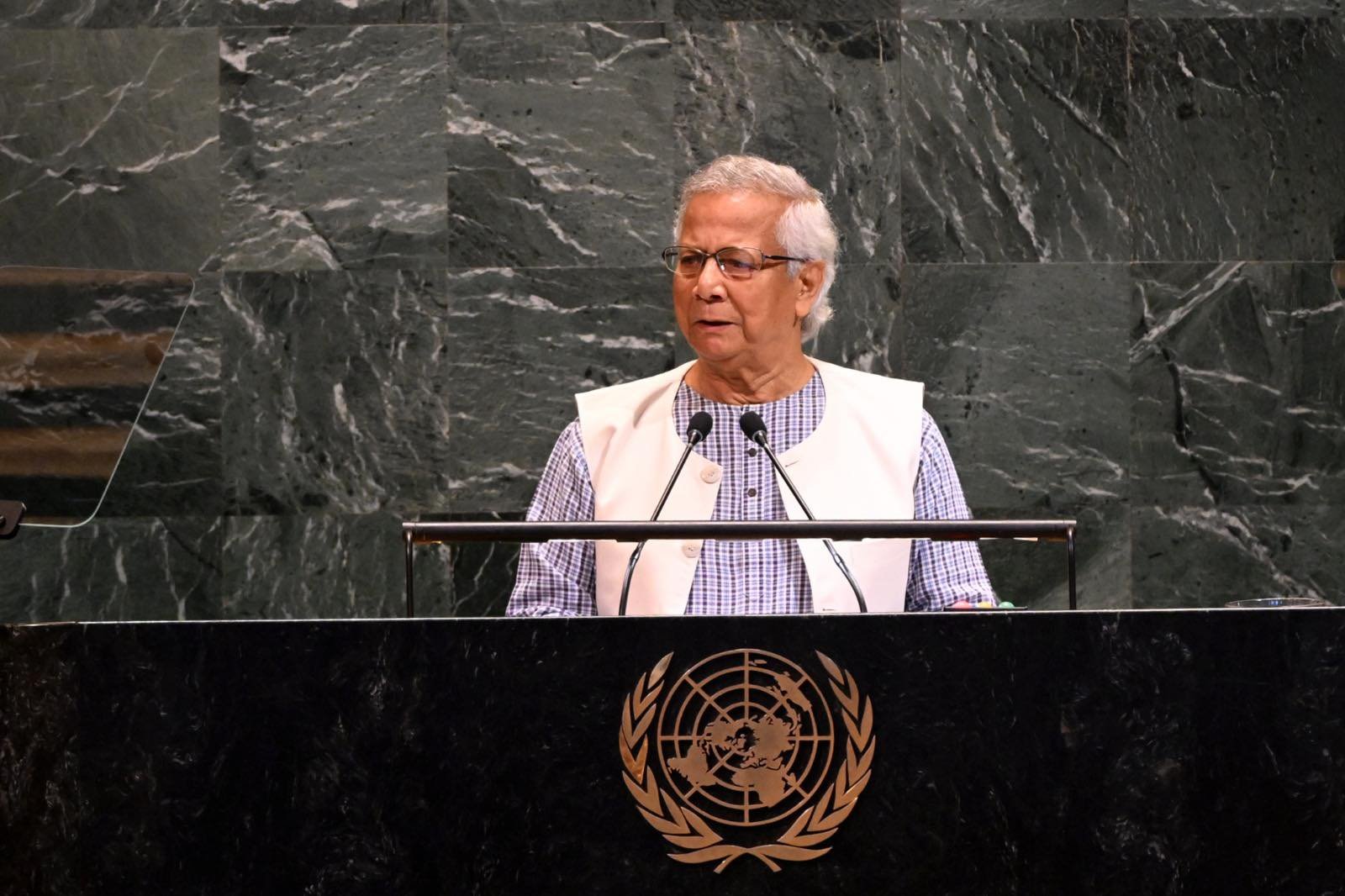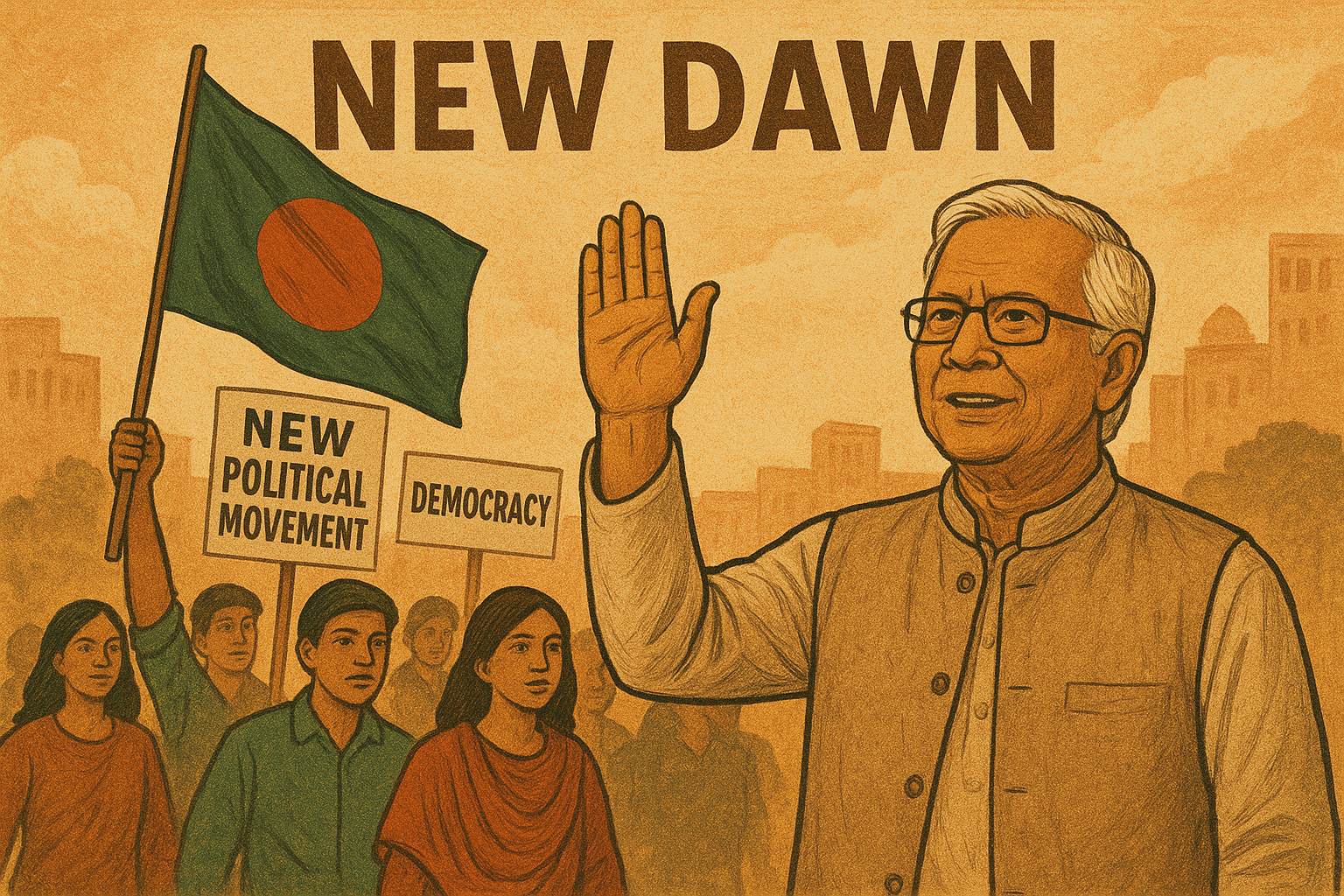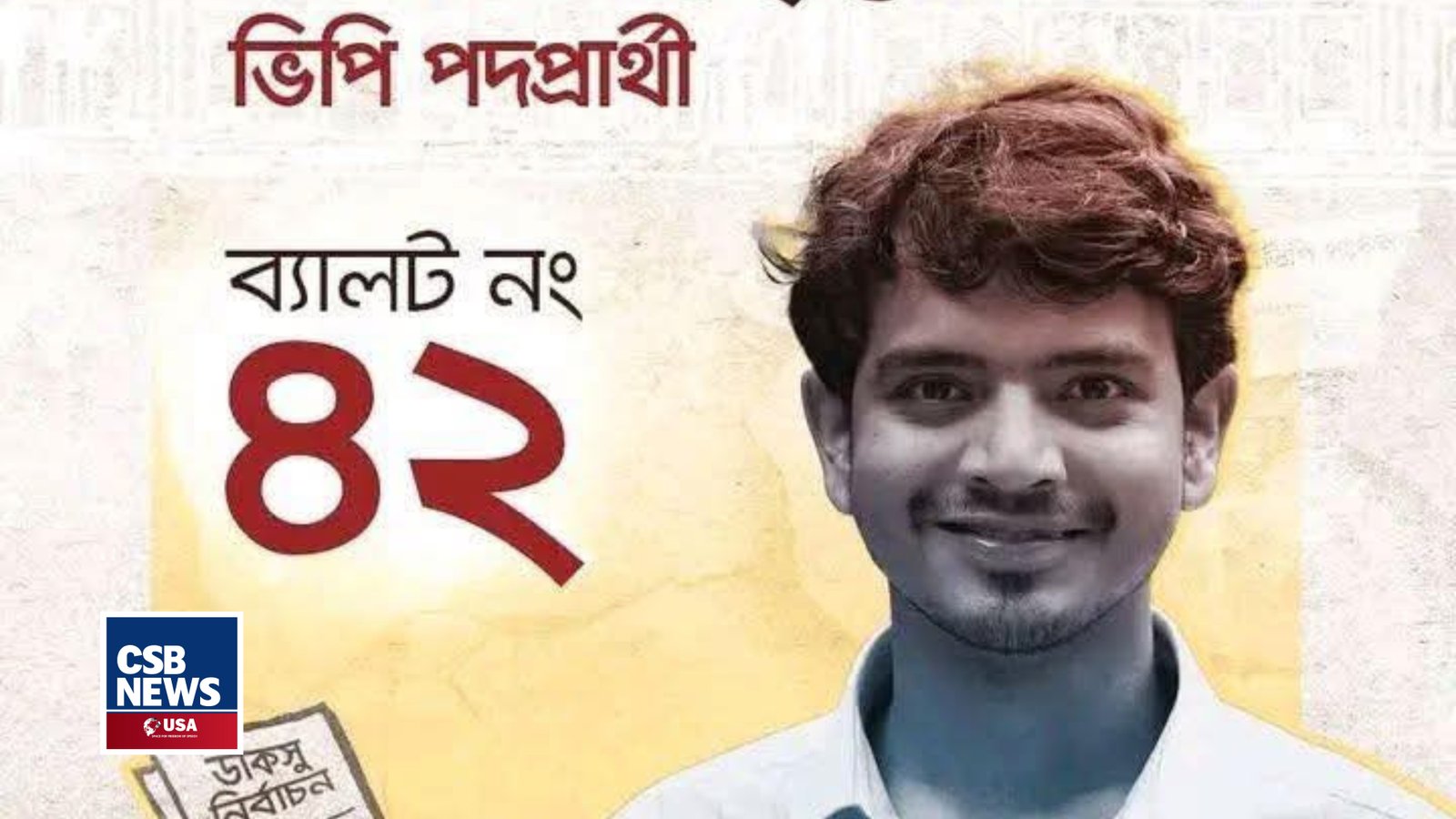Bangladesh's Interim Government: A Crisis of Justice in the Name of Democracy
After Sheikh Hasina was ousted from power in 2024, the interim government led by Dr. Yunus promised democracy. But in reality, it has brought judicial control, suppression of opposition, persecution of journalists, and the resurgence of extremism. Bangladesh is now in a political crisis devoid of justice.
Bangladesh's Interim Government: A Crisis of Justice in the Name of Democracy
DHAKA — In the aftermath of Prime Minister Sheikh Hasina was ousted from power in 2024, Bangladesh stood at a historic crossroads. Millions had poured into the streets demanding change. When Nobel laureate Dr. Muhammad Yunus took charge of the interim government on August 8, hope briefly surged. But within months, observers say the country slid into an equally sinister pattern: a legal and institutional breakdown where the promise of democratic renewal has been replaced by judicial repression, emboldened extremism, and selective rule of law.
Weaponizing the Courts: From Reform to
Reprisal
What began as a vow
to deliver accountability quickly morphed into what many rights groups now
describe as a politically charged purge. By May 2025, over 266
journalists were facing criminal charges—many under the Digital Security
Act (DSA) and Cyber Security Act (CSA)—for covering or criticizing
the government’s handling of protests and dissenting voices.
The Awami League
(AL), once the ruling party, was officially banned on May 10, 2025
under Bangladesh’s Anti-Terrorism Act—a move condemned by the UN
Office of the High Commissioner for Human Rights for "undermining a
return to a genuine multi-party democracy."
Simultaneously,
courts have fast-tracked charges against former ministers and AL leaders for
“crimes against humanity,” while Dr. Yunus himself had a six-month
conviction overturned quietly by the High Court just one day before taking
office.
Awami League’s
perspective was echoed anonymously, who told us:
“This is not
justice—this is political revenge in legal disguise. The interim government has
hijacked the judiciary to do what it cannot justify democratically. These laws
were never meant to silence political opposition, yet that’s all they’re doing
today.”
Legal experts also
argue this is not justice, but a breach of fundamental judicial norms.
One senior advocate of the Supreme Court, speaking on condition of anonymity,
explained:
“The selective use
of laws like the Anti-Terrorism Act 2009 and Digital Security Act
violates both Article 27 (equality before law) and Article 35 (right
to fair trial) of the Constitution. What we are seeing now is a judiciary
being wielded as a political weapon.”
Further troubling
was the mass resignation of Chief Justice Obaidul Hassan and five senior
judges on August 10, following public pressure from student leaders aligned
with the new regime. While framed as a "reorganization," it has
effectively installed executive-friendly justices and left the judiciary
vulnerable to political influence.
Empowering the Extremists: Jamaat’s
Return and a Dangerous Gamble
One of the most
alarming reversals came on August 28, 2024, when the Yunus government lifted
the anti-terror ban on Jamaat-e-Islami, Bangladesh’s largest Islamist
party, previously outlawed for links to extremism and war crimes.
In the days that
followed, Mufti Jasimuddin Rahmani, chief of the banned al-Qaeda–linked Ansarullah
Bangla Team, was released, alongside Brig. Gen. Abdullahil Azmi and Ahmad
Bin Quasem, both suspected of ties to Pakistan’s ISI and Jamaat’s militant
wing.
Since their release,
these individuals have publicly rallied against secularism and demanded
the continued ban on the Awami League. According to Netra News, Rahmani’s
rallies directly preceded the government’s decision to outlaw AL, suggesting government
capitulation to Islamist pressure.
The return of
extremist voices has also sparked renewed attacks on minorities. In
Cumilla, Hindu temples were vandalized, while Ahmadi and Buddhist
communities faced harassment—echoes of the sectarian violence once
suppressed under prior regimes.
Legislation as a Tool of Oppression
Rather than
dismantle the authoritarian laws of its predecessor, the interim regime has expanded
them. It introduced amendments to the International Crimes (Tribunals)
Act, 1973, allowing tribunals to ban political organizations, a move
HRW warns could violate international standards of due process and freedom
of association.
The Enforced
Disappearances Law, another bill pushed by the new administration, excludes
past or systematic disappearances—letting those responsible for previous
atrocities escape accountability. HRW criticized the bill as “a whitewash” that
fails to meet international legal standards.
These legislative
moves represent what HRW called a “structural reconfiguration of
authoritarianism under democratic disguise.” Constitutional guarantees like
freedom of association (Art. 38) and freedom of speech (Art. 39)
are now routinely sidelined.
The International Community
Watches—But Acts Little
Initially, the U.S.,
U.K., and EU welcomed Dr. Yunus’s appointment, hoping for stability and
reform. However, as repression escalated, so did global concern. A joint
statement from Amnesty International, CPJ, and Human Rights Watch in March
2025 urged the government to “guarantee the right to free expression” and cease
attacks on journalists.
Still, no sanctions
followed. The UNHRC’s February 2025 report condemned the judicial overreach
and minority attacks, but implementation has stalled. India,
notably, has stayed silent—choosing strategic proximity over democratic
principle.
Manipulating the Global Narrative
The interim
government has also struggled to contain international scrutiny. When The
New York Times published an exposé warning of rising Islamist influence, it
drew immediate rebuke from the administration. Government advisers claimed
there was “no rise in militancy,” even as extremists marched freely in Dhaka.
A counter-editorial
in The Business Standard admitted that mere rebuttals are failing,
and warned the government must “proactively manage its international image with
transparency, not censorship.”
Conclusion: A Judiciary in Ruins, a
Democracy in Retreat
The evidence is
stark: Bangladesh’s interim government has betrayed its promise of
democratic renewal. Its justice system, far from independent, has been converted
into a weapon—one that punishes dissent, shields insiders, and invites
extremism into governance.
A retired senior
judge, also speaking on condition of anonymity, offered this assessment:
“When courts become
tools of executive power, democracy collapses in disguise. The resignations of
top justices and the reshaping of the bench contradict Articles 94 and 116A
of the Constitution. Without judicial independence, the Constitution is just
ink on paper.”
As student
protestors once chanted for a “New Bangladesh,” what they have received is an
old pattern under a new face. The rule of law is not selectively applied
justice—it is, by definition, universal. Until the Yunus government
recognizes this truth, the cycle of repression will continue, and
Bangladesh’s dream of democracy will remain deferred.
✍️ Report Prepared By: Fozla Rabbi Robna


